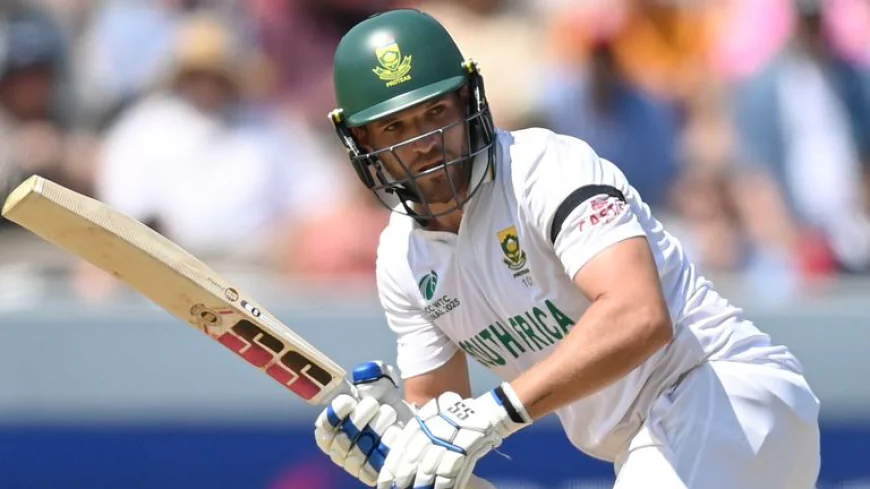Mulder’s Silent Tribute: A 367 That Touched Immortality but Stopped Before Everest
South African captain Wiaan Mulder scored an unbeaten 367 on Day 2 of the Bulawayo Test but chose not to continue his innings post-lunch. With Brian Lara’s record of 400* within reach, Mulder declared the innings at 626/5, sparking discussions about whether it was a strategic decision or a silent tribute to Lara. While he didn’t break the record, he did set new milestones for South African and world cricket.

The midday sun stood still over Bulawayo. The wind carried whispers of a storm that never came. On the second day of the Test, South African captain Wiaan Mulder walked into the lunch break unbeaten on a colossal 367. The world leaned in. Hearts paused. The shadows of history stretched long on the pitch.
A triple century already secured, Mulder stood at the doorstep of immortality. Just a few steps more, and Brian Lara's 400*, the Everest of Test cricket, would lie within reach. The opposition—Zimbabwe—was toothless. The pitch—a docile canvas. And Mulder, unbothered and serene, painted strokes like a poet mid-soliloquy.

But then came silence.
South Africa, at 626 for 5, declared the innings. Mulder remained not out on 367. He did not return. The bat was rested. The world blinked in disbelief.
Thousands of miles away in Trinidad, perhaps the morning light had just entered Brian Lara’s room. He may have turned on the television, perhaps half-preparing his heart for what he had once faced—when Matthew Hayden eclipsed his 375 in 2003. Lara had then worn a congratulatory smile that tried to veil the ache. Six months later, he reclaimed his throne with a majestic 400* at Antigua. Since then, the summit had remained untouched, sacred.
Until now.
For in Bulawayo, Mulder was not just batting—he was walking the razor’s edge between greatness and grace.
One could argue: Why didn’t he continue? South Africa had three full days left. They had the firepower to bowl Zimbabwe out twice. Another session wouldn’t have changed the outcome. Just 33 more runs—and Lara’s Everest would be his.
But Mulder turned away.
Did he, like Mark Taylor in 1998, declare in quiet reverence? Taylor had halted at 334* to match Bradman’s record, refusing to step over a ghost of greatness. Did Mulder sense the same? That Lara’s number was more than a record—it was a monument, not to be demolished, but honored.
If so, the poetry runs deeper.
He could have gone past Hayden’s 380 too—and still stopped short of Lara. But he didn’t. He halted at 367, a number heavy with possibilities left untouched. Was it strategy? Sentiment? Or simply humility in its purest form?
Only Mulder can answer that. And perhaps, he will—in the post-day press conference. But until then, the cricketing world swims in a pool of questions, stirred by awe.
Yet, in choosing to stop, Mulder still carved history:
-
The highest individual score in South Africa's Test history.
-
The nation’s second triple centurion after Hashim Amla.
-
The second fastest triple century in Test history—behind Virender Sehwag’s 278-ball masterclass.
-
The highest Test score by a visiting batsman on foreign soil—surpassing Hanif Mohammad’s 337 at Bridgetown in 1958.
Records, milestones, glory—all were there. And yet, he chose restraint.
Cricket is a game of numbers, yes. But it is also a game of unsaid prayers, of reverent pauses, and of heads bowed before greatness.
Wiaan Mulder, in not reaching Lara, may have risen closer to him than anyone ever has.


